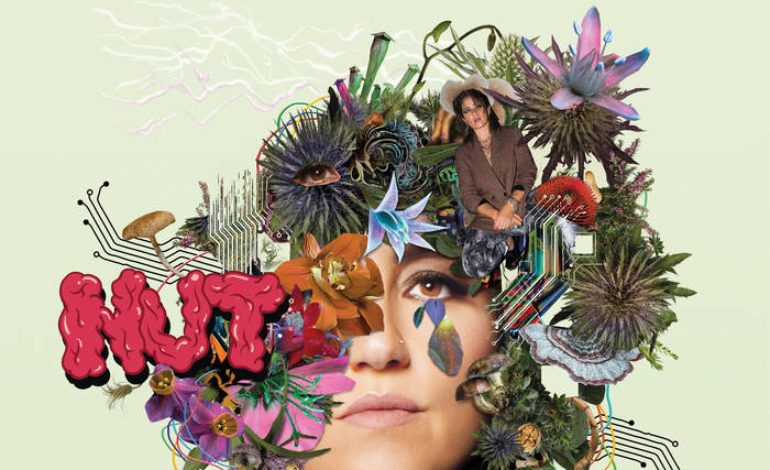

An examination of the mind
Scottish singer-songwriter Kate Victoria “KT” Tunstall released her sixth studio album through EMI Records. Her claim to fame is her 2004 single “Black Horse and the Cherry Tree” which earned her a nomination for the Best Female Pop Vocalist GRAMMY award. Since then, Tunstall has released a handful of records with varying levels of success. Her latest projects have been part of a trilogy, each album characterizing the soul (Kin – 2016), the body (Wax – 2018) and the mind (NUT – 2022).
NUT is inherently designed to be a conceptual album, however the variation in genre between the songs makes the project feel too scattered to feel like it has a conceptual purpose. The songs on the record are nonetheless enjoyable, with each one containing very impressive levels of production and songwriting. The first track, “Out Of Touch,” shows the talent of the artist, and is undeniably catchy and unique in its production style. However, the track sets up a different expectation for the rest of the album.
The best track is the one that is most stylistically different from the rest of the album. “Three” is a classic singer-songwriter track. The instrumentals are more acoustic than the two tracks before it, and the tempo is slowed down to create a more soothing atmosphere. The melody is beautiful and the lyrics are simple yet effective. Tunstall sings “And here I stand at the end / as electricity dances,” which shows lovely imagery.
“Canyons” was the album’s lead single. It is definitely one of the stronger tracks on the record. The tempo is faster, and there is clearly more energy compared to a track like “Three.” A thick electric guitar is one of the key features of this song, and coupled with Tunstall’s mesmerizing voice, the track is one that you’ll have on repeat. The last minute of the song is electronic, utilizing vocal distortions of the line “in the canyons” It makes for a very interesting and creative addition to the album.
“All The Time” is the album’s penultimate track, utilizing a similar acoustic sound to “Three,” but with a different style of lyricism. “I’m watching the breeze move a spider’s web / How I love getting tangled up in all the things you said,” is probably the best example of Tunstall’s impressive songwriting skills, being able to fuse everyday experiences with stronger feelings. While this track is not as melodically enjoyable as “Three,” it definitely has stronger lyricism.
Individually, every track on this album is enjoyable. The only thing that did not work in the record’s favor is the supposed conceptual element of “the mind.” Sure, some tracks cover similar material in regard to Tunstall’s relationship with her mind and how it informs her behavior and personality. However, the variation between the tracks makes the project feel like an amalgamation of unrelated songs rather than something that should seem cohesive. The album is most definitely worth a listen, and hopefully Tunstall will see more commercial success for tracks like “Three” and “Canyon.”
